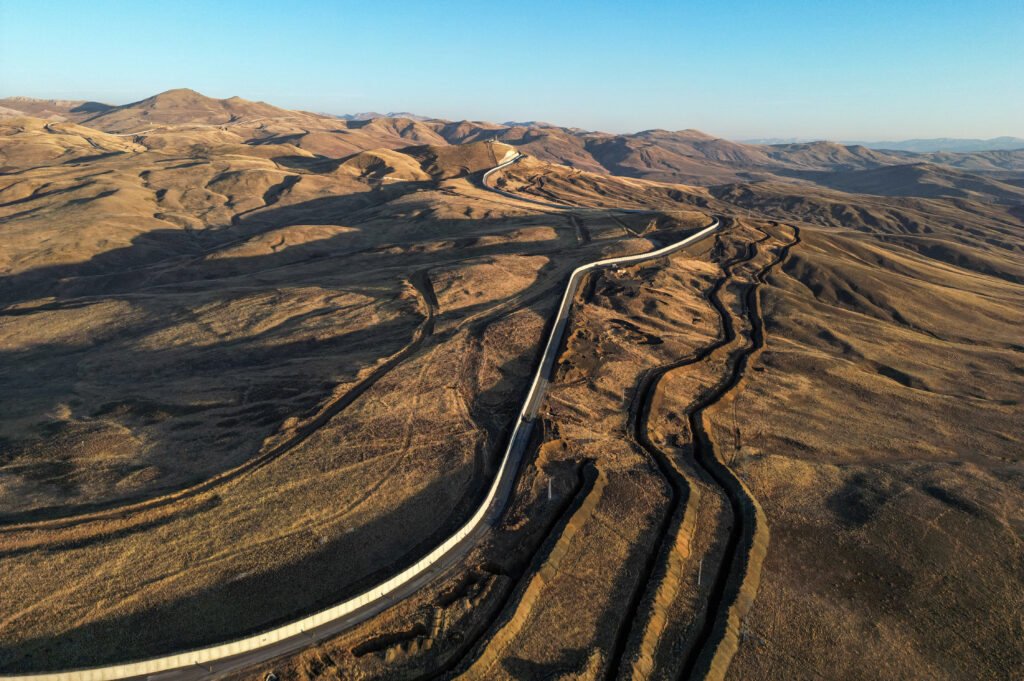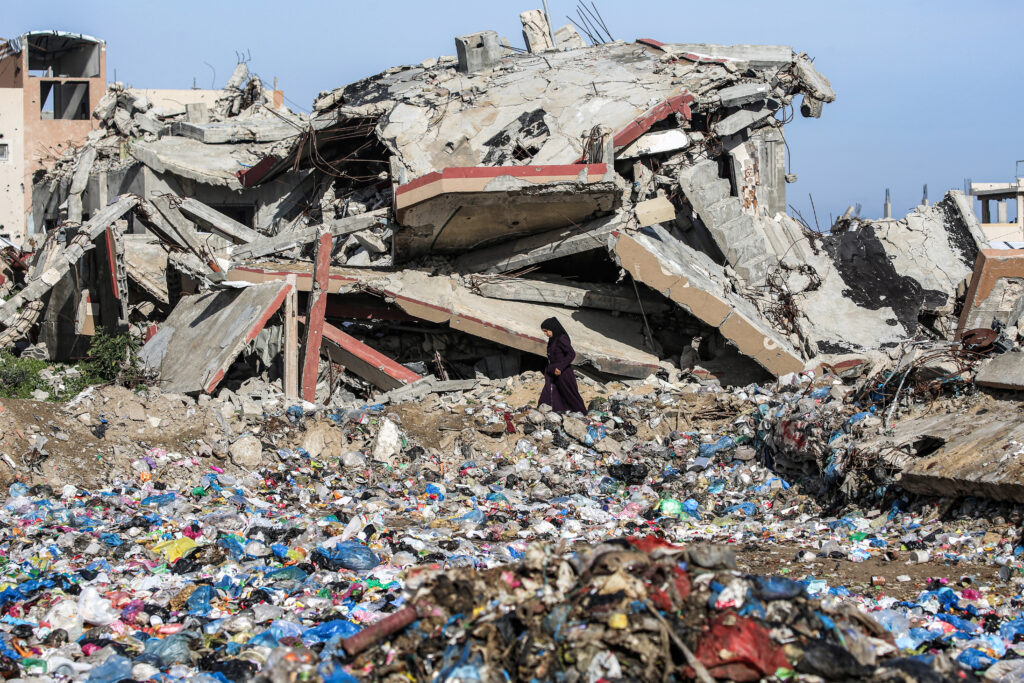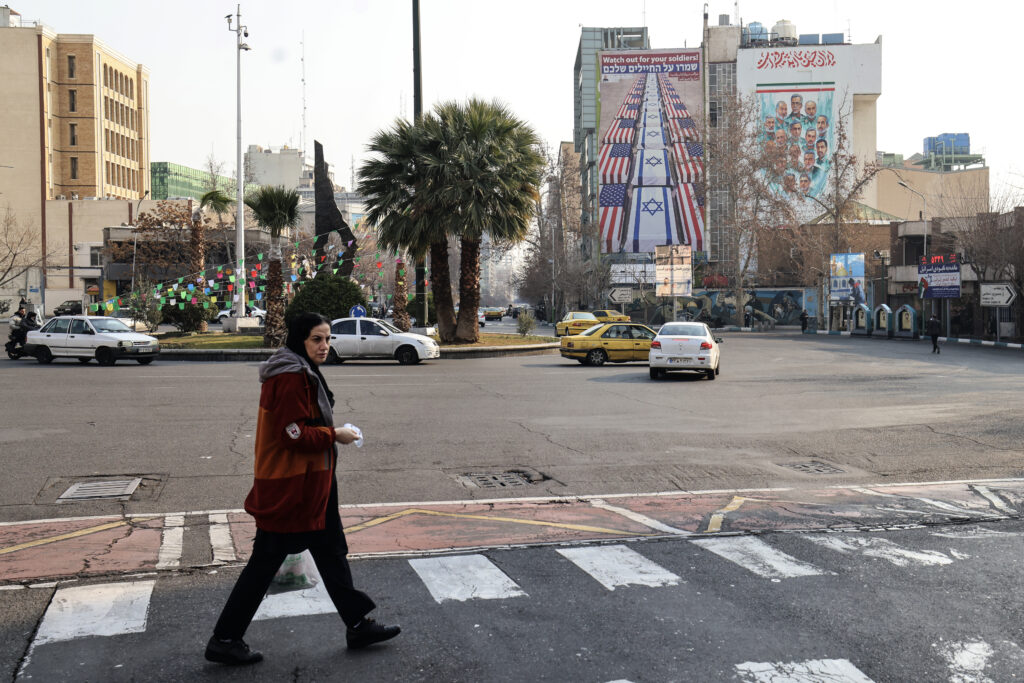AFP Asia Business
Iran’s top diplomat in Istanbul for talks as US tension simmers
Iran’s top diplomat Abbas Araghchi landed in Istanbul on Friday for talks where Turkey was to offer help to mediate tensions with the United States, which has mooted a possible military strike. During the visit, Araghchi was to hold talks with Turkish Foreign Minister Hakan Fidan and also meet with President Recep Tayyip Erdogan, Iran’s foreign ministry said in a statement announcing his arrival. It was not immediately clear at what time the talks would take place but the two ministers were to hold a news conference at 13:45 pm (1045 GMT), the Turkish authorities said. Friday’s visit comes hours after US President Donald Trump said he hoped to avoid military action against Iran, which has threatened to strike American bases and aircraft carriers in response to any attack.For several weeks, Trump has been threatening to launch a military strike on Iran over its deadly protest crackdown earlier this month. A US naval strike group has been in Middle Eastern waters since Monday and Trump warned it was “ready, willing and able” to hit Iran “if necessary”. Late on Thursday, Trump — who had previously warned time was “running out” for Tehran — appeared to slightly pull back, saying: “We have a group headed out to a place called Iran, and hopefully we won’t have to use it.”Turkey has repeatedly expressed its staunch opposition to military action and was to offer to mediate between Washington and Tehran in talks with Araghchi on Friday. It is also considering measures to reinforce security along its border should the dispute escalate. Fidan has urged the sides to return to the negotiating table and suggested Washington tackle outstanding issues with Iran “one-by-one”, starting with the nuclear file rather than trying to address everything at once. As well as Turkey’s diplomatic efforts to stave off a military confrontation, Erdogan has also been pushing Washington for a high-level trilateral meeting, Turkey’s Hurriyet daily, which is close to the government, reported on Thursday. There was no official confirmation of the report. Alongside its diplomatic push, Ankara is assessing additional security precautions along its 500-kilometre (310-mile) frontier with Iran, a senior Turkish official told AFP.Turkey began construction of a wall in 2021 and has so far built 380 kilometres (236 miles) of concrete barrier and 553 kilometres of trenches with nearly 250 surveillance towers. burs-hmw/ach
Israel says killed ‘three terrorists’ in Gaza
The Israeli military said on Friday it launched overnight strikes at “eight terrorists” in the southern Gaza city of Rafah, killing three of them, with a fragile ceasefire still in place in the Palestinian territory.The US-brokered ceasefire, which sought to halt the fighting between Israel and Hamas sparked by the group’s October, 2023 attack has been in place for more than three months despite both sides accusing the other of repeated violations.Earlier in January, Washington announced that the truce had progressed to its second phase, intended to bring a definitive end to the war, even as both sides accused each other of failing to comply with the terms of the truce.In a statement on Friday, the Israeli military said it had identified “eight terrorists” who emerged from underground and that the air force “struck and eliminated three of the terrorists”.Without providing any information on the identities of its targets, it said that further strikes were launched and that “soldiers continue to conduct searches in the area in order to locate and eliminate all the terrorists”.The Israeli military said its forces “remain deployed in accordance with the ceasefire agreement and will continue to operate to remove any immediate threat”. The first phase of the ceasefire largely halted the fighting and provided for the release of all remaining living and dead hostages held by militants in Gaza in exchange for prisoners and the bodies of dead Palestinians held by Israel.The remains of the final hostage, Ran Gvili, were returned earlier this week, with his funeral taking place on Wednesday. – Hamas disarmament -Israel said on Sunday that it would allow a limited reopening of the Rafah crossing, with only pedestrians allowed through, falling short of what aid groups and Gazans had hoped for.The humanitarian situation in the territory of more than two million people remains dire, with most of the population displaced and many living in tents with little or no sanitation amid harsh winter weather.The reopening of Rafah is also expected to allow the entry of the 15-member technocratic administrative committee created as part of the ceasefire to oversee the running of Gaza.The National Committee for the Administration of Gaza, made up of Palestinians, is charged with managing day-to-day governance of the territory and answers to US President Donald Trump’s “Board of Peace”.A key point of the ceasefire’s second phase is the disarming of Hamas. On Thursday, Trump told his cabinet that “It looks like they’re going to disarm”.Publicly, the Islamist group has fiercely resisted the idea of giving up its weapons.In return, Israel is meant to fully withdraw its forces, who remain in control of more than half of Gaza, with an international stabilisation force deployed in their stead.
Trump says ‘hopefully’ no need for military action against Iran
US President Donald Trump said on Thursday he hoped to avoid military action against Iran, which has threatened to strike American bases and aircraft carriers in response to any attack.Trump said he is speaking with Iran and left open the possibility of avoiding a military operation after earlier warning time was “running out” for Tehran as the United States sends a large naval fleet to the region.When asked if he would have talks with Iran, Trump told reporters: “I have had and I am planning on it.””We have a group headed out to a place called Iran, and hopefully we won’t have to use it,” the US president added, while speaking to media at the premiere of a documentary about his wife Melania. As Brussels and Washington dialled up their rhetoric and Iran issued stark threats this week, UN chief Antonio Guterres has called for nuclear negotiations to “avoid a crisis that could have devastating consequences in the region”. An Iranian military spokesman warned Tehran’s response to any US action would not be limited — as it was in June last year when American planes and missiles briefly joined Israel’s short air war against Iran — but would be a decisive response “delivered instantly”. Brigadier General Mohammad Akraminia told state television US aircraft carriers have “serious vulnerabilities” and that numerous American bases in the Gulf region are “within the range of our medium-range missiles”.”If such a miscalculation is made by the Americans, it will certainly not unfold the way Trump imagines — carrying out a quick operation and then, two hours later, tweeting that the operation is over,” he said.An official in the Gulf, where states host US military sites, told AFP that fears of a US strike on Iran are “very clear”. “It would bring the region into chaos, it would hurt the economy not just in the region but in the US and cause oil and gas prices to skyrocket,” the official added. – ‘Protests crushed in blood’ -Qatar’s leader Sheikh Tamim bin Hamad Al Thani and Iran’s President Masoud Pezeshkian held a call to discuss “efforts being made to de-escalate tensions and establish stability,” the Qatar News Agency (QNA) reported.The European Union, meanwhile, piled on the pressure by designating the Islamic Revolutionary Guard Corps (IRGC) a “terrorist organisation” over a deadly crackdown on recent mass protests.”‘Terrorist’ is indeed how you call a regime that crushes its own people’s protests in blood,” said EU chief Ursula von der Leyen, welcoming the “overdue” decision. Though largely symbolic, the EU decision has already drawn a warning from Tehran.Iran’s military slammed “the illogical, irresponsible and spite-driven action of the European Union”, alleging the bloc was acting out of “obedience” to Tehran’s arch-foes the United States and Israel. Iranian officials have blamed the recent protest wave on the two countries, claiming their agents spurred “riots” and a “terrorist operation” that hijacked peaceful rallies sparked over economic grievances. Rights groups have said thousands of people were killed during the protests by security forces, including the IRGC — the ideological arm of Tehran’s military. In Tehran on Thursday, citizens expressed grim resignation.”I think the war is inevitable and a change must happen. It can be for worse, or better. I am not sure,” said a 29-year-old waitress, speaking on condition of anonymity for fear of reprisals. “I am not in favour of war. I just want something to happen that would result in something better.”Another 29-year-old woman, an unemployed resident of an upscale neighbourhood in northern Tehran, told AFP: “I believe that life has highs and lows and we are now at the lowest point.”Trump had threatened military action if protesters were killed in the anti-government demonstrations that erupted in late December and peaked on January 8 and 9. But his more recent statements have turned to Iran’s nuclear programme, which the West believes is aimed at making an atomic bomb.On Wednesday, he said “time is running out” for Tehran to make a deal, warning the US naval strike group that arrived in Middle East waters on Monday was “ready, willing and able” to hit Iran. – Conflicting tolls -The US-based Human Rights Activists News Agency (HRANA) said it has confirmed 6,479people were killed in the protests, as internet restrictions imposed on January 8 continue to slow verification. But rights groups warn the toll is likely far higher, with estimates in the tens of thousands. Iranian authorities acknowledge that thousands were killed during the protests, giving a toll of more than 3,000 deaths, but say the majority were members of the security forces or bystanders killed by “rioters”. Billboards and banners have gone up in the capital Tehran to bolster the authorities’ messages. One massive poster appears to show an American aircraft carrier being destroyed.burs-sw-sjw/ceg/lb
Iran threatens to hit US bases and carriers in event of attack
Iran threatened Thursday to instantly strike US bases and aircraft carriers in response to any attack, after US President Donald Trump warned time was running out for Tehran and the EU blacklisted its Revolutionary Guards as a terror group. As Brussels and Washington dialled up their own rhetoric and Iran issued stark threats, UN chief Antonio Guterres called for nuclear negotiations to “avoid a crisis that could have devastating consequences in the region”. An Iranian military spokesman warned Tehran’s response to any US action would not be limited — as it was in June last year when American planes and missiles briefly joined Israel’s short air war against Iran — but would be a decisive response “delivered instantly”. Brigadier General Mohammad Akraminia told state television US aircraft carriers have “serious vulnerabilities” and that numerous American bases in the Gulf region are “within the range of our medium-range missiles”.”If such a miscalculation is made by the Americans, it will certainly not unfold the way Trump imagines — carrying out a quick operation and then, two hours later, tweeting that the operation is over,” he said.An official in the Gulf, where states host US military sites, told AFP that fears of a US strike on Iran are “very clear”. “It would bring the region into chaos, it would hurt the economy not just in the region but in the US and cause oil and gas prices to skyrocket,” the official added. – ‘Protests crushed in blood’ -Qatar’s leader Sheikh Tamim bin Hamad Al Thani and Iran’s President Masoud Pezeshkian held a call to discuss “efforts being made to de-escalate tensions and establish stability,” the Qatar News Agency (QNA) reported.The European Union, meanwhile, piled on the pressure by designating the Islamic Revolutionary Guard Corps (IRGC) a “terrorist organisation” over a deadly crackdown on recent mass protests.”‘Terrorist’ is indeed how you call a regime that crushes its own people’s protests in blood,” said EU chief Ursula von der Leyen, welcoming the “overdue” decision. Though largely symbolic, the EU decision has already drawn a warning from Tehran.Iran’s military slammed “the illogical, irresponsible and spite-driven action of the European Union”, alleging the bloc was acting out of “obedience” to Tehran’s arch-foes the United States and Israel. Iranian officials have blamed the recent protest wave on the two countries, claiming their agents spurred “riots” and a “terrorist operation” that hijacked peaceful rallies sparked over economic grievances. Rights groups have said thousands of people were killed during the protests by security forces, including the IRGC — the ideological arm of Tehran’s military. In Tehran on Thursday, citizens expressed grim resignation.”I think the war is inevitable and a change must happen. It can be for worse, or better. I am not sure,” said a 29-year-old waitress, speaking on condition of anonymity for fear of reprisals. “I am not in favour of war. I just want something to happen that would result in something better.”Another 29-year-old woman, an unemployed resident of an upscale neighbourhood in northern Tehran, told AFP: “I believe that life has highs and lows and we are now at the lowest point. “Neither the economic situation, nor our livelihood is good. It is the lowest for me.”Trump had threatened military action if protesters were killed in the anti-government demonstrations that erupted in late December and peaked on January 8 and 9. But his recent statements have turned to Iran’s nuclear programme, which the West believes is aimed at making an atomic bomb.On Wednesday, he said “time is running out” for Tehran to make a deal, warning a US naval strike group that arrived in Middle East waters on Monday was “ready, willing and able” to hit Iran. – Conflicting tolls -The US-based Human Rights Activists News Agency (HRANA) said it has confirmed 6,479people were killed in the protests, as internet restrictions imposed on January 8 continue to slow verification. But rights groups warn the toll is likely far higher, with estimates in the tens of thousands. Iranian authorities acknowledge that thousands were killed during the protests, giving a toll of more than 3,000 deaths, but say the majority were members of the security forces or bystanders killed by “rioters”. Billboards and banners have gone up in the capital Tehran to bolster the authorities’ messages. One massive poster appears to show an American aircraft carrier being destroyed.burs-sw-sjw/ceg/lb



